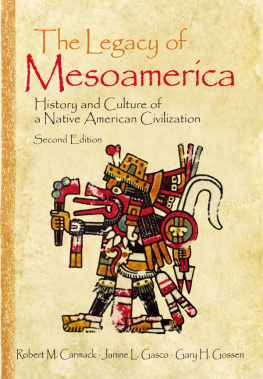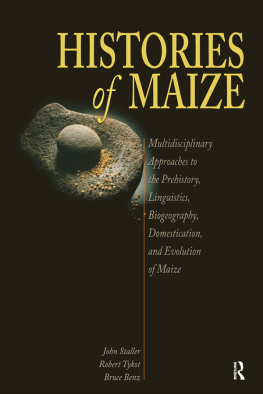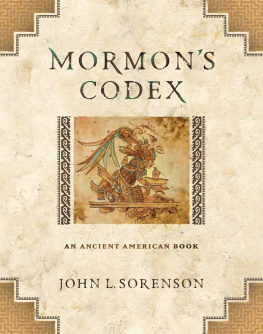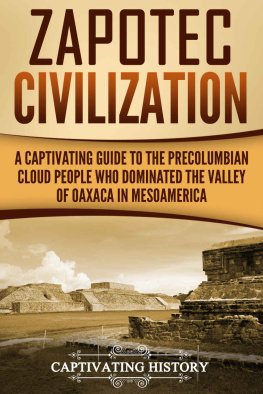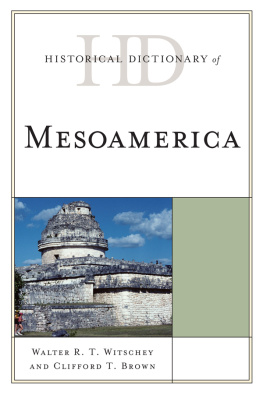First published 2007, 1996 by Pearson Education, Inc.
Published 2016 by Routledge
2 Park Square, Milton Park, Abingdon, Oxon OX14 4RN
711 Third Avenue, New York, NY 10017, USA
Routledge is an imprint of th e Taylor & Francis Group, an informa business
Copyright 2007, 1996 Taylor & Francis. All rights reserved.
All rights reserved. No part of this book may be reprinted or reproduced or utilised in any form or by any electronic, mechanical, or other means, now known or hereafter invented, including photocopying and recording, or in any information storage or retri eval system, without permission in writing from the publishers.
Notice:
Product or corporate names may be trademarks or registered trademarks, and are used only for identification and explanation without intent to infringe.
Credits and acknowledgments borrowed from other sources and reproduced, with permission, in this textbook appear on appropriate page within text.
ISBN: 9780130492920 (pbk)
Cover Design: Bruce Kenselaar
Library of Congress Cataloging-in-Publication Data
The legacy of Mesoamerica : history and culture of a Native American civilization / [edited by] Robert M. Carmack, Janine Gasco, Gary H. Gossen.2nd ed.
p. cm.
Includes bibliographical references and index.
ISBN 0-13-049292-2
1. Indians of MexicoHistory. 2. Indians of Central AmericaHistory. 3. MexicoCivilization. 4. Central AmericaCivilization. I. Carmack, Robert M. II. Gasco, Janine. III. Gossen, Gary H.
F1219.L44 2007
Contents
(Janine Gasco, Marilyn A. Masson, Robert M. Rosenswig, Michael E. Smith)
(Robert M. Carmack, Janine Gasco, Marilyn A. Masson, Michael E. Smith)
(Robert M. Carmack)
(Louise M. Burkhart and Janine Gasco)
(Louise M. Burkhart and Janine Gasco)
(Louise M. Burkhart)
(Robert M. Carmack and Gary H. Gossen)
(Robert M. Carmack)
(Liliana R. Goldin and Walter E. Little)
(Gary H. Gossen)
(John S. Justeson and George A. Broadwell)
(Brenda Rosenbaum and Christine Eber)
(Gary H. Gossen)
(Gary H. Gossen)
Once again we invite our readers to share the urgency and passion that we feel toward the contents of this second edition of the Legacy book. We think the new edition is timely inasmuch as the native peoples of Mexico and Central America continue to attract the interest of scholars, students, and educated citizens. Indeed, since the publication of the first edition of this text interest in the topic shows no signs of abating.
THE SIGNIFICANCE OF MESOAMERICA FOR SCHOLARLY STUDIES
The encounter of the Old and New worlds, which commenced in a sustained fashion in 1492, can be said to have fundamentally changed the course of human history. This encounter not only provided the opportunity for the ascendancy of Spain and Portugal to the role of being the first truly global powers, but also, in a real sense, initiated the globalization of humanity under European hegemony, a pattern that for better or worse remains with us to this day.
Although the Caribbean Basin was the stage for the early and cataclysmic period of initial contactit resulted in nothing less than the virtual annihilation of hundreds of thousands of Caribbean Indians, essentially the entire population by 1550the institutionalization of Spains New World enterprise took root only with the conquest of Mesoamerica and the creation of New Spain, and subsequently the parallel enterprise in Peru. By 1600, fundamental Western ideas and practices concerning modernity, social progress, tutelage of the vanquished, bureaucratic rationalism, and economic and political dependency under the global system we know as colonialism were firmly in place, complete with all of that systems atrocities and social asymmetries. Indeed, Mesoamericas radically truncated and transformed Indian communities, forced to live under Spains missionary state, became what might be called prototypes of colonized peoples, a social condition that would eventually characterize much of Asia, Africa, North and South America, and the Pacific in the ensuing centuries.
Aside from the particulars of this period, which will be discussed elsewhere in this text, it should be remembered that the sixteenth-century theological and philosophical debates regarding the moral status of the Amerindians were in large part focused on data that came from New Spain (Mexico). These discussions, which came to influence not only Crown and Church policy in America but also the very foundations of Western ideas about human nature, carried in their wake nothing less than the dawn of modern social science; that is, the attempt to understand human variation in what was the beginning of a truly global comparative perspective (Klor de Alva, 1988).
Sixteenth-century Mesoamerican data provided the first major, modern ethnographic reports, perhaps best exemplified by Bernardino de Sahagns enormous corpus, in which we have a comprehensive and objective description of the customs, social organization, economy, and arts of the Nahuatl world, all of it set down in the native language with Spanish translation. This is not distant from the goals of modern ethnography. It was thus set down for all to see (although few saw the work since it was suppressed) that Spain had in fact encountered and destroyed a high civilization, comparable in some ways to Europe itself. Not only did Sahagn and others achieve a certain detachment of their descriptions from their missionary and political agenda; some also came to appraise the moral status of the colonial enterprise itself.
Father Bartolom de las Casas, who had witnessed firsthand Spains atrocities of the early Contact period in the Caribbean and later in what is now southern Mexico and Guatemala, wrote one of the most influential political treatises of sixteenth-century Europe (A Brief Description of the Destruction of the Indies) as a critique of his own countrys systematic destruction and cruel exploitation of Amerindians in the Caribbean and in Mesoamerica. In this work, as in many other theological and political works of the period, we are able to discern a clear pattern of cultural critique and relativism, a distancing of the observer from his own culture.
Needless to say, men like Sahagn and Las Casas were exceptional individuals and their ideas were unpopular at the time. Nevertheless, it is important to note that these contemporary-sounding reports and reflections about human nature, the human condition, and human variation came from sixteenth-century Spaniards who were writing of Mesoamerica. Thus, in addition to the vast material wealth and enormously important food, fiber, and medicinal plant cultigens that flowed from the New World to the Old World, there also came from America the challenge to reflect upon the origins, interrelations, mutability, internal coherence, and moral value of myriad human social forms that were unfamiliar to the Old World.
To this brief sketch of what we believe to be the significance of Mesoamerica to the formative period of modern Western intellectual history, must be added the major contributions by colonial Spanish scholars to the lexicography, transcription, translation, and grammatical analysis of Mesoamerican and other Native American languages. This is noteworthy because it was a Spaniard, Father Nebrija, who in 1492 wrote the first grammar of Castilian; this was also the first grammar of any vulgate Latin language. Hence, Spains influential Renaissance scholarship in philology and descriptive linguistics continued with major works on the languages of the New World, establishinglargely with Mesoamerican dataa remarkable corpus of written testimonies in native languages with sophisticated translations.
Next page
